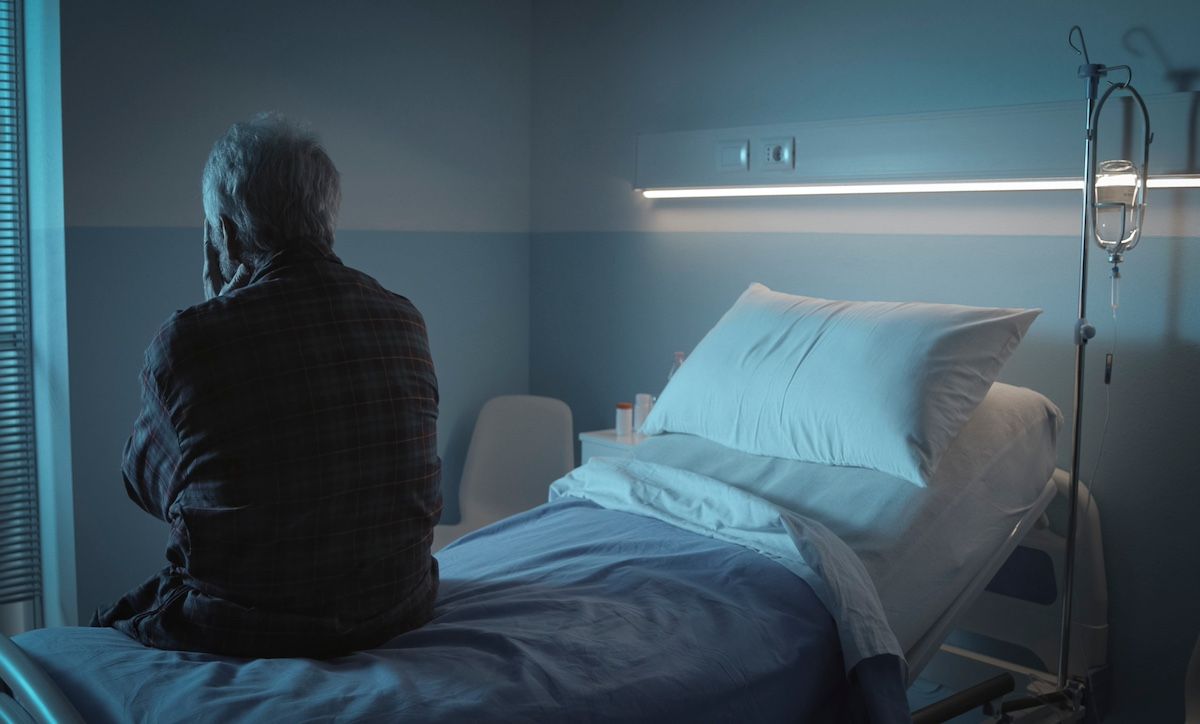- Center on Health Equity & Access
- Clinical
- Health Care Cost
- Health Care Delivery
- Insurance
- Policy
- Technology
- Value-Based Care
CAR T-Cell Therapy Effective in Older Patients With DLBCL
Overall survival and complete response rates were comparable across a younger and an older cohort of patients with relapsed/refractory diffuse large B-cell lymphoma (DLBCL).
Chimeric antigen receptor (CAR T) T-cell therapy was effective and had practical application in patients aged 70 and older with relapsed/refractory diffuse large B-cell lymphoma (R/R DLBCL), with outcomes among these patients similar to those seen among younger patients, according to a multicenter cohort study published in HemaSphere.
DLBCL is the most common type of aggressive lymphoma, and 30% of new diagnoses are seen in patients 75 years or older, representing a major factor in determining DLBCL outcomes, investigators wrote.
Previous research demonstrates the curative potential of CAR T-cell therapy for older patients who may have received palliative treatment prior to the development of the therapy, and past clinical trials for patients aged 65 to 70 years have reported positive post–CAR T-cell therapy outcomes in patients with DLBCL, according to the investigators.
In this retrospective study, the participants received either axicabtagene ciloleucel or tisagenlecleucel | Image Credit: stokkete - stock.adobe.com

Despite these encouraging prospects, more research is needed to understand the impact that age and other factors have on survival outcomes among older patients who receive CAR T-cell therapy. The purpose of the current study was to evaluate the efficacy and toxicity profiles of older patients who have DLBCL and are treated with CD-19–directed CAR T cells, and then compare the data to younger patients who underwent the same treatment.
The retrospective study analyzed data from 172 patients with R/R DLBCL treated with CAR T-cell therapy between January 2019 and May 2023. The median age of all patients at treatment initiation was 65 (range, 19-82) years. Of the patients, 109 (63.4%) were aged 70 or younger, and 63 (36.6%) were older than 70 years at infusion, the investigators wrote.
The overall response rates (ORRs) were 77.7% (< 70 years) and 78.3% (≥ 70 years) for the age groups (P = .63). Additionally, the median time to the best possible response was comparable between the groups, at 2.3 and 3.0 months, respectively, the investigators found.
Progressive disease (PD) at CAR T-cell infusion was also studied, along with other response patterns before and after infusion for both groups. The proportion of patients with PD at CAR T-cell infusion who achieved a complete response (CR) or partial response (PR) after therapy was 72.2% for the younger group and 77.8% for the older group.
Progression-free survival (PFS) and overall survival (OS) also were analyzed. At a median follow-up of 8.3 (range, 0.07-44.3) months, the estimated median PFS was 10.2 (95% CI, 6.5-21.8) months and 11.1 (95% CI, 4.9-NR) months in participants younger than 70 years and those 70 years and older (P = .93), and corresponding estimated median overall survival (OS) was 21.8 (95% CI, 11.8-NR) months and 34.4 (95% CI, 10.1-NR) months (P = .97), respectively, the investigators found.
Next, the investigators shifted their focus to understanding the safety profile and CAR T-cell–specific toxicities. Cytokine release syndrome (CRS) of all grades was observed in 145 patients (84.3%), accounting for 87.2% of the younger group and 79.4% of the older age group (P = .67). The incidence rates of severe CRS were at 11.9% and 7.9%, respectively (P = .45). Furthermore, there was no difference regarding the incidence of immune cell–associated neurotoxicity syndrome (ICANS) between the younger and older groups (P = .11), according to the investigators.
Both cohorts, each primarily treated with axicabtagene ciloleucel or tisagenlecleucel, had a comparable ORR that exceeded 75%. The investigators noted that these results were consistent between the 2 age groups and with large real-world cohorts, especially real-world older cohorts, as previous studies have reported.
Real-life scenarios will continue to pose challenges in bridging patients who have R/R DLBCL to CAR T-cell therapy, since older patients are particularly vulnerable to hematologic and nonhematologic toxicities that are associated with bridging therapies, which will continue to impact the outcomes of older patients, the investigators discussed.
Several limitations of the study were noted by the study authors. Their study sample was limited, despite it being a multicenter study, and the retrospective design of the study may have limited generalizability of the results. Further, patients underwent different treatments prior to treatment with CAR T-cell therapy, which limits the accuracy of the results for the older age group.
Still, the results from the study can provide a clearer understanding of the application of CART cells in older patients with R/R DLBCL and emphasize that enhanced vigilance is necessary with this cohort of patients to observe and treat any complications.
“Further studies with longer follow-ups are necessary to further evaluate the long-term safety and efficacy in older DLBCL patients undergoing CAR T-cell therapy,” the investigators concluded.
Reference
Berning P, Shumilov E, Maulhardt M, et al. Chimeric antigen receptor-T cell therapy shows similar efficacy and toxicity in patients with diffuse large B-cell lymphoma aged 70 and older compared to younger patients: a multicenter cohort study. HemaSphere. 2024;8:3,e54. doi:10.1002/hem3.54
